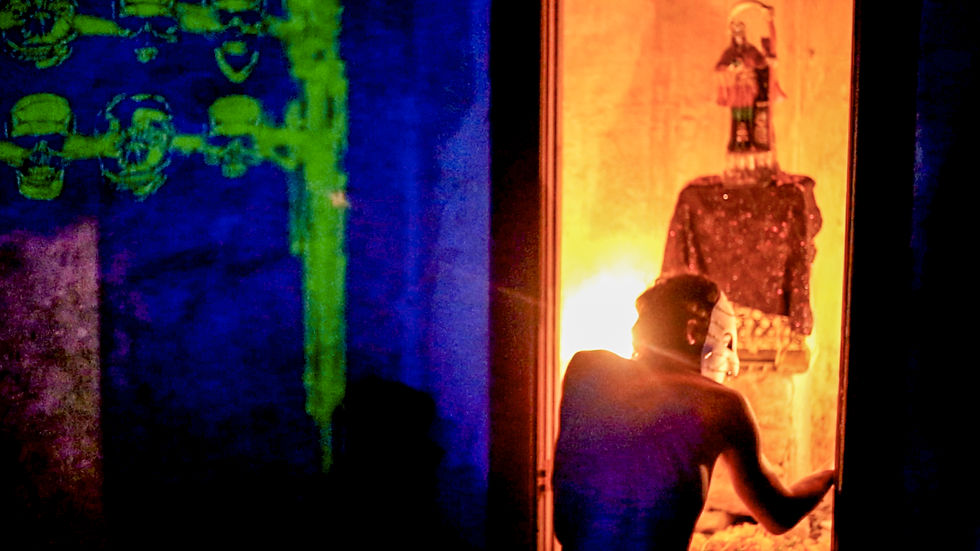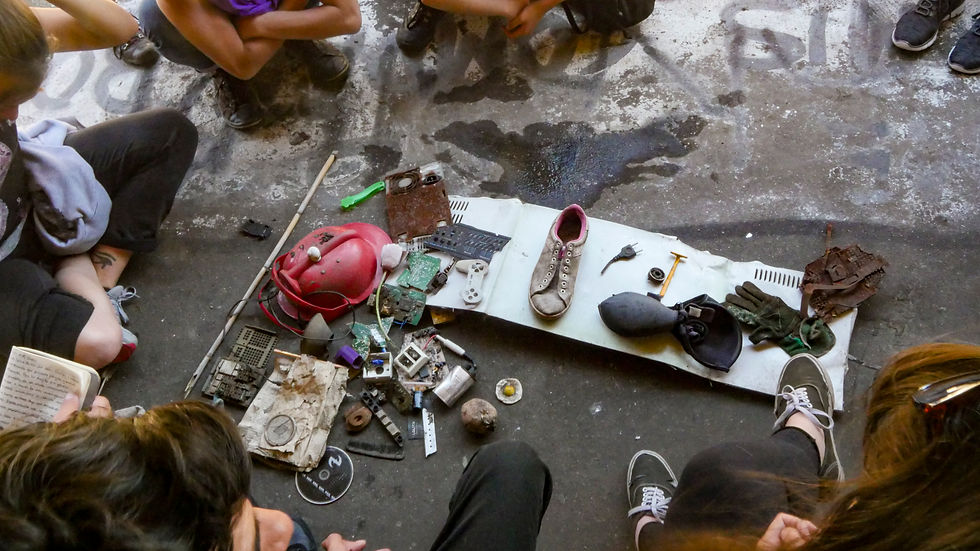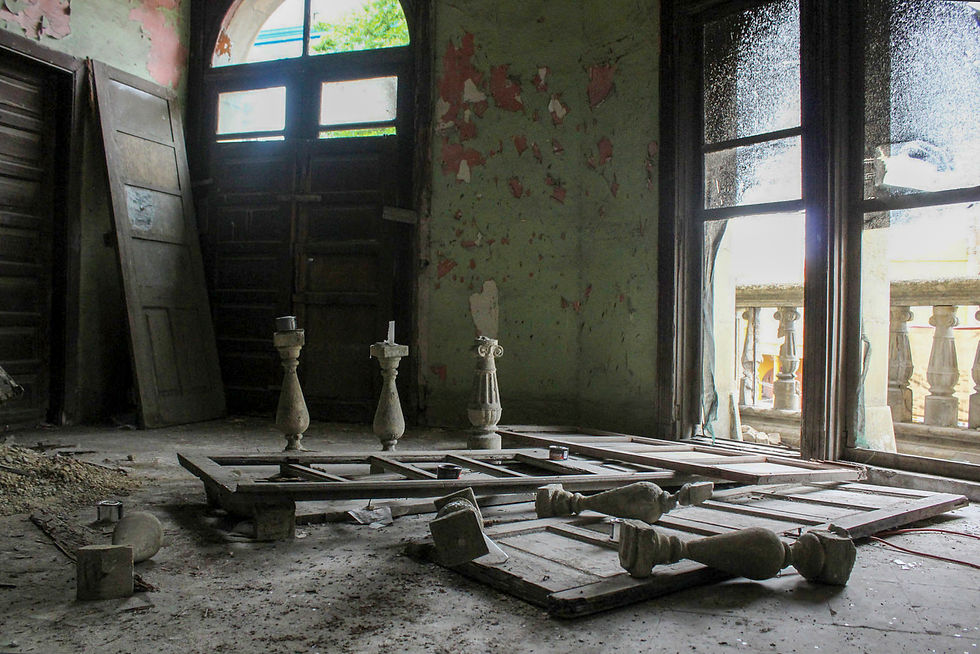



HAUNTOLOGIES
To learn to live 'with' ghosts, in the upkeep, the conversation, the company, or the companionship, in the commerce without commerce of ghosts...
. No 'being-with' the other, no 'socius' without this 'with' that makes 'being-with' in general more enigmatic than ever for us.
And this being-with specters would also be, not only but also, 'a politics' of memory, of inheritance, and of generations”
(1993, Jacques Derrida)
Hauntology is a spectral event. It is the appearance of a ghost, not as a repetition or recreation of the past, but as the staging of a presence that challenges the living in the present. It is a historical event; it is also a theatrical event.
The French philosopher Jaques Derrida takes up the Shakespearean tragedy of Prince Hamlet to dwell on the figure of the ghost: at night a shadow appears claiming the name of the dead king. We know that the father of the prince does not appear in Kronborg castle only as a recreation of what he was, but with the enunciation of two novelties: the revelation about the reasons for his death, the murder, and the claim for revenge. This manifestation of the past with a strong sense of representation spills over into the future. However, the dead do not come back to life. Nor is it a manifestation of memory or a mere exercise of the imagination; in turn calls for resolute acts. It is a Hauntology.
We observe the irruption of hauntologies in everyday life, sometimes as coincidences produced by the context and sometimes as intentional evocations. As historical events, they are real. They owe their power not only to memory but to their ability to articulate themselves, to manifest themselves in the world, and to have a voice to speak about the future.
